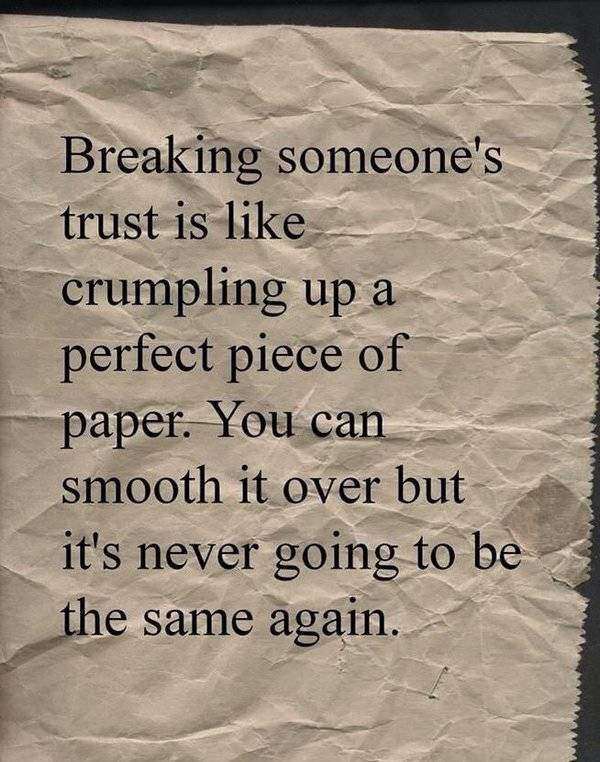Relationships can be very difficult to navigate. We can never assume that they will be easy as 2 very different human beings coming together can bring entirely new factors into play because even understanding ‘who we are’ can often be a challenge.
Necessity Of Communication In Our Relationship
People often tell us that communication is necessary in any healthy relationship. They fail to tell us WHY. How many things hinge on you and your partner being able to say what you mean to each other. How it affects your mood, your love for each other, and even your day-to-day stress levels.
So why do we need to understand the importance of communication not just in our significant relationship with our partner but in all our relationships. A good place to start is with a thorough understanding of the importance of communication.
Respect is strengthened
When we effectively communicate as a couple we both develop respect for each other. The idea is simple: people are wholehearted. They can understand on a very subtle level when something’s wrong and when it is going well.
Good communication signifies a healthy relationship. When it comes to talking about what’s going on in your life, they understand more by what you don’t say than what you do. When you have something to say, whether it’s good or bad, you need to say it. However, the delivery is important!
Your partner may have empathy you aren’t expecting, and talking it through will help to strengthen your bond. This also indicates you respect them enough to be mindful of how this might affect them and you’re honest enough to speak the truth.
Honesty is always the best policy and one of the crucial elements of effective communication within a relationship. Being yourself without giving into fear will cause you to speak the truth respectfully. With-holding hard truths has the opposite effect.
There Is No Assuming
Speaking the truth plainly is one of the keys to successful relationships.
A healthy connection with someone doesn’t come from withholding and remembering a string of little lies. It comes from being above-board and open with them. No need to hide anything.
Being willing to learn good communication skills means you wont have to worry about being “found out”. Your relationship becomes simpler, leaving both of you less stressed and ultimately, happier. A deeper trust of each other leads to a deeper connection.
Confusion is Avoided
Every relationship is two people - both unique - as we all have our good days and bad. It is inevitable that we will miscommunicate somewhere along the line or forget to tell about an important thing or events and there will be a miscommunication.
Communicating our mistakes and expressing ourselves to our loved ones more often, can alleviate this confusion. We become more used to explaining ideas, thoughts, love languages and concepts to others in a way that they will understand when we practice good communication skills. This breeds much healthier relationships and relieves the stress when you are not needing to worry about offending or saying a hard truth - It takes the stress out of speaking your mind.
Trust is Built
The importance of trust in a relationship cannot be overstated. It is a big deal. Time is required to develop trust. If there is no inherent trust in the person you’re in a relationship with, the relationship is stifled and cannot grow healthily.
This is the hard work of building communication. It requires courage and practice and without this the relationship will fail in the end. Couples have to be consistent and open with each other by this honest and authentic communication. The more you practice good communicating skills with your partner - the more trust is built, a depth of connection is able to flourish as confidence in one another grows to a deeper level.
Effective communication skills help to make you and both feel more secure. Otherwise, the relationship will not be able to prosper.
Supporting Each Other
Simplicity is always best. Life is difficult and in many differing and unique ways. When we don’t share our hardships with each other or run into personal challenges we need to be available so our partner can be there for us, even when it doesn’t seem easy. Our partner can offer support and encouragement as well as a shoulder to lean on, but they also benefit by knowing they were a part of the solution.
If our partner doesn’t know anything is troubling us - it cannot be resolved! Improving your communication skills as a couple means you will be there to support each other when the needs arise.
Love Deepens
Like a well watered garden, it flourishes. Stop watering and tending to it, and the garden will surely die. This is the same as when we let our communication go stale, our love diminishes from lack of nourishment.
NO communication = NO love - It is naive to expect that we can keep being loved if we stop communication with them - regardless of the reasons why. If this is the case, the love will die and nothing can bring it back. This is the harsh reality of keeping quiet and clamming up in relationships. Most often the missing ingredient is honest, open communication and the first reason you became so close in the beginning of our relationship. We need to be able to remind each other why we fell in love with them in the first place.
Drifting apart is easy and sadly, happens often because the communication ceases. Effort from both parties is required to keep the love light burning brightly.
Mood Is Improved
Being able to express true happiness and joy to a special someone is one of life’s greatest gifts. When we are genuinely happy and we let our partner know, the happiness is doubled and passed on.
Expressing honest, down to earth joy about something to our partner allows us to show our emotions. It sets a mood of elevation and happiness that helps create a better feeling of wellbeing and contentment and boosts our relationship to new levels.












